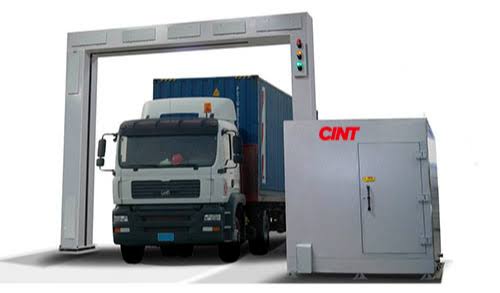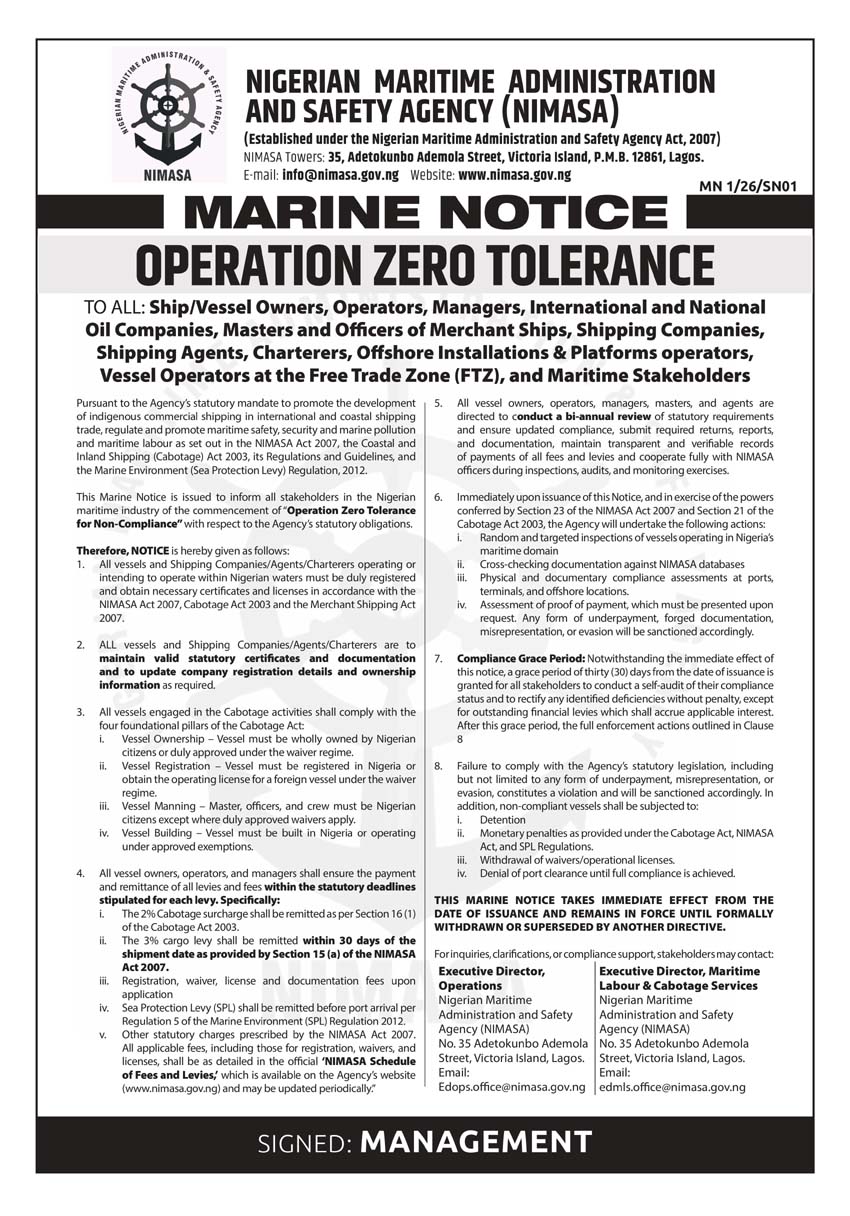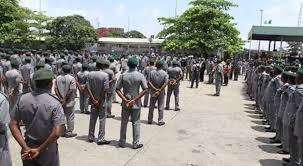By Joshua Yousouph
Stakeholders in the nation’s maritime industry have alleged that the scanners that were installed at the Lagos ports are grossly ineffective to address the challenges of cargo examination. Their complaints are coming about five months after the equipment were installed.

Recall that after several months of delay, the Nigeria Customs Service, in October 2022 deployed cargo scanners at the Apapa, Tin Can and Onne seaports. The eventual deployment of the scanners comes more than one year after the Federal Government had procured them for the service to fast-track cargo examination at the ports.
According to stakeholders who spoke to our correspondent last week, the non-usage of the cargo scanners by Customs, have hindered federal government’s ease of doing business policy and increased the already high cost of doing business at the nation’s ports.
The industry stakeholders, especially clearing agents noted that many of the consignments at the ports still go through 100 percent physical examination. They allege that Customs officers sabotage the process in other to have physical interface with clearing agents.
Our correspondent who visited the Apapa port last week, for an on-the-spot assessment of scanning activities, observed that the scanning machine at Apapa is still under-utilised. Our correspondent who was at the cargo scanning area of the port during cargo examination for hours observed that for more than an hour, only two containers were scanned.
He also observed the terminals were full with consignments that were yet to be examined and cleared.
It was also observed that the scanning site at Apapa port is still positioned very close to the standard gauge rail line, as against the qquaysideproposed by the e-Customs Modernization Project by the NCS.
Speaking with our correspondent last week, the National Association of Government Approved Freight Forwarders (NAGAFF) National Coordinator of the 100 Percent Compliance Team; Alhaji Tanko Ibrahim, noted that the installation of one scanner each at the Lagos ports is just for test-running as it is not enough for the volume of cargo that is being handled.
He also blamed the terminal operators for the ineffectiveness of cargo scanning at the ports, adding that many of them lack the necessary equipment to enhance scanning of cargoes at the ports.
Tanko stressed that the ineffectiveness of the scanners has defeated the purpose for which they were introduced.
He alleged that with the scanners, ammunition and drugs can still be successfully concealed in a consignment without being detected by the scanners.
Giving details, Tanko explained that if a gun or ammunition is dismantled and concealed in a 40ft container that carries spare parts, the scanning machine cannot detect or identify the gun or the ammunition.
He also added that hard drugs can be concealed in a consignment carrying pharmaceutical drugs and the scanning machine will not be able to identify the hard drugs.
The NAGAFF Compliance Team Coordinator, however, noted that the implementation of e-Customs will address these issues, even as he added that the government’s revenue drive which is one of the reasons for acquiring the scanners is still low, because Customs still prefer physical examination where they make money for themselves.
“The scanners in question are not enough for the volume of the work we do in the ports. These scanners are just for test-running and the Customs will write their report based on the performances of the scanners and send it to Abuja. We only have one scanner in each port and there are a certain number of hours that they can work”, he stated.
Speaking further, he added that, “we have two issues, the terminal operators don’t have enough trucks that can be feeding that machine (scanners). You will see that if they bring a few containers, it will take them some hours to bring others. This is because the other trucks are loading, block stacking or positioning, which will delay the scanning of the containers.
“About two months ago, the scanner broke down and we had to go back to physical examination before it was fixed. We have a lot of challenges and we have made several complaints, but no improvement. Probably the elections have also affected this. Our major problem for now is that the scanner cannot take pressure. The terminal operators are not helping matters. They lack equipment”, he stressed.
Confirming the inability of the scanners, he added: “This scanning is basically for two issues which are security and revenue. But it is not working for security because if you pieces a gun and put it inside a 40ft container that carries spare parts, that machine cannot identify those guns. If you conceal Tramadol in pharmaceutical drugs, that machine cannot identify the drugs. In the issue of security, the scanning has failed. You can get away with drugs and ammunition. When you talk about revenue, it is 50/50”.
Also speaking, the National Secretary of the Association of Registered Freight Forwarders of Nigeria (AREFFN), Mr Frank Obiekezie noted that a good number of the cargoes at the ports go for physical examination, adding that when cargoes are scanned and the Customs are not satisfied, they subject those containers to 100 percent physical examination. According to him, all pharmaceutical products coming into the ports are scanned.
Speaking further, he stated that some importers and clearing agents are not comfortable with the scanners, because they do shady deals. He stressed that scanning of cargoes at the ports is the way to go, but Customs will however always create avenue for human interface.
“If a container is scanned and they are not satisfied, it will go for physical examination and all drugs will go for physical examination. We are not running away from scanning. You know that some of our colleagues and some other importers who do certain kinds of jobs are not comfortable with the scanners. Scanning is the way to go, but you know the human element. Sometimes, there might be some downtime because it is a machine”, he said.
On his part, the Public Relations Officer of the African Professional Freight Forwarders and Logistics of Nigeria (APFFLON) Tin Can Chapter, Mr Clinton Okoro told Shipping Position Daily that the reason why the scanners are not effective at the ports is because the Customs are sabotaging the process.
“The promise they gave us was that after the containers are scanned and they come into the terminals and it is alerted ‘Red’, then you can go and open your container for examination. But if it is signaled ‘Blue’ or ‘Gree’, then you have a free and express delivery. You will just go and do your Customs Duty payment and also pay the shipping company and terminal fee and go with your container. That is what is supposed to be, but the Customs are the ones sabotaging the system” Okoro alleged.
But, when contacted, the Customs Public Relations Officer of Apapa Command, Abubakar Usman confirmed that the scanners may not be able to differentiate hard drugs from other pharmaceutical products.
He also admitted that the scanner can not provide other details such as, the production and expiry dates of drugs, except they are physically examined. He added that these are some of the reasons all pharmaceutical cargoes are not scanned, but are subjected to physical examination at the ports.
“The scanners can detect pharmaceutical products. But it cannot tell you which one is Tramadol or which is Paracetamol. The scanner cannot also detect which drugs has registration number or give you the details of the production date or expiry date. That is why such cargoes must undergo physical examination.
Reacting to the alleged inability of scanners to detect arms and ammunition concealed in spare parts cargo, Usman said: “Why not? The scanners can identify ammunition. But speaking about it being concealed in spare parts cargo, I am not an expert in that. There are so many technicalities involved and I cannot be able to answer your questions to your satisfaction. I will advise that when you come to the office, I’ll direct you to see the scanning manager or the image analyst. Those guys are in the best position to answer your questions” he concluded.
Kindly like us on Facebook















